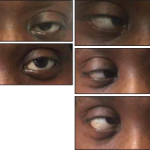NEW YORK (Reuters Health)—Immunotherapy appears to yield neurological improvements in some patients with autoimmune cerebellar ataxia, especially those with nonparaneoplastic disorders, researchers report.
“I was surprised that so many patients responded to immunotherapy (steroids, intravenous immunoglobulin (IVIg), and plasma exchange) and remained ambulatory,” Dr. Andrew McKeon from Mayo Clinic in Rochester, Minn., told Reuters Health by email. “I previously had a somewhat negative outlook on this disorder.”
At least 17 autoantibodies have been causally linked to autoimmune cerebellar ataxia, but little has been published regarding treatment responses and neurological outcomes among these patients, Dr. McKeon and colleagues write in JAMA Neurology, online Sept. 28. The disorder is usually of rapid onset and progression, with dysarthria, disorders of gait and balance, and limb ataxia among the disabling neurological deficits.
The team report their treatment and outcome experience for 118 adult patients with autoimmune cerebellar ataxia. The median age of symptom onset was 58 years (range, 27-83), and about three-quarters of the patients were women.
Just over half the patients had additional coexisting extracerebellar disorders, most commonly upper motor neuron signs. Patients with paraneoplastic disorders had more severe clinical courses regardless of treatment: 17 of 63 (27%) patients with a paraneoplastic disorder became wheelchair dependent within three months of symptom onset, compared with only four of 55 patients (7%) with nonparaneoplastic disease.
Most patients (81/118, 68.6%) had an antibody directed against a neuronal nuclear or cytoplasmic (NNC) antigen, 22 (18.6%) had an antibody targeting a neural plasma membrane protein (PMP) receptor or an ion channel, and 15 (12.7%) had antibodies from both categories.
There was improvement in 39% of patients treated with corticosteroids, in 25% of those treated with IVIg, in 32% of those treated with plasma exchange, and in 20% of those treated with cyclophosphamide. None of three patients treated with rituximab improved.
For corticosteroids, but not for other treatments, responses were significantly better for patients with nonparaneoplastic disorders than for patients with paraneoplastic disorders (56% vs. 21%, p=0.002).
Eight of 22 patients judged to have robust responses to immunotherapy improved only with a second treatment after initial treatment with a different immunotherapy modality had failed.
At the last follow-up, 48% of patients required a wheelchair, 22% used a walker, and 6% used a cane. Among the remaining 29 patients, 25 required no gait aid but had an abnormal gait, and four had a normal gait.
Patients with NNC antibodies progressed to wheelchair dependence more quickly than did those with PMP antibodies, and patients seropositive for PCA-1 progressed more quickly than those without PCA-1. Patients with GAD65 antibodies progressed to wheelchair dependence more slowly than those without GAD65 antibodies.

